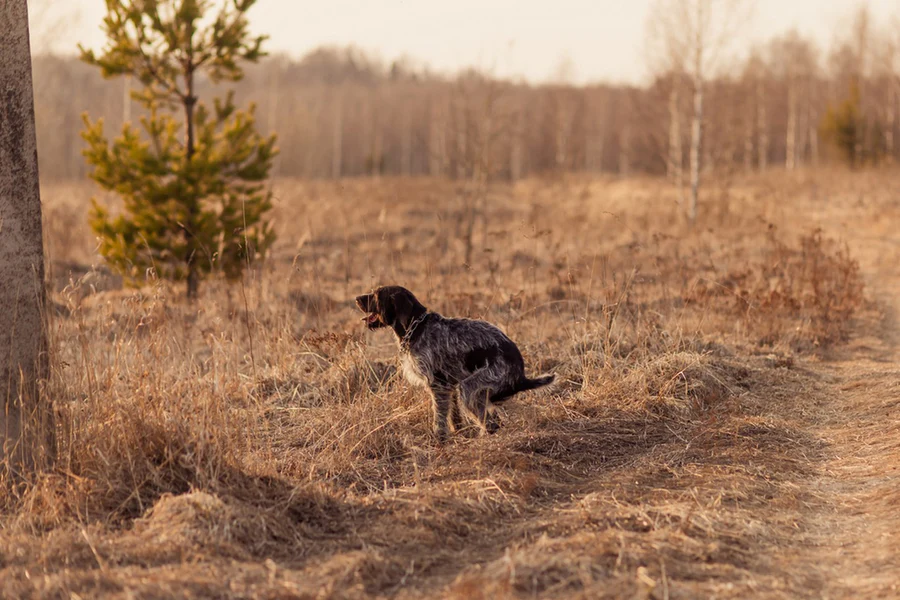
You’re familiar with your dog’s habits, including their potty schedule and regular bowel movements. Yet, when your dog faces constipation, it can be worrisome. Constipated dogs often struggle to defecate or may be unable to poop altogether.
While a day of constipation is usually not alarming, persistent constipation, exceeding 24-48 hours, warrants a vet’s attention as it might signal a more severe health issue. If you’re wondering what to give a constipated dog, this guide provides insights into constipation in dogs, its causes, and potential treatments.
What Is Constipation?
Dog constipation manifests as an inability to produce normal stools. Most dogs typically defecate once or twice a day, but constipated dogs may struggle to do so. Common symptoms of dog constipation include:
- No stool for over 48 hours
- Hard, dry stool
- Straining to defecate
- Painful defecation
- Mucus in stool
- Blood in stool
Recognizing these signs is crucial. If your dog squats to poop but nothing is expelled, or if they try to walk while still in a squatted position, constipation is likely. The resulting poop, when possible, may be hard, dry, and compacted. Additionally, dogs experiencing stomach upset might eat grass or drag their bottoms on the floor.
What Causes Constipation In Dogs?
Various factors contribute to constipation in dogs, similar to the causes in humans. Common triggers include:
- Low exercise
- Dehydration
- Poor diet or nutritional deficiencies
- Imbalanced fiber intake
- Age
- Blockages
- Hypothyroidism
- Renal issues
- Ingestion of human foods
- Prostate issues
- Certain medications
- Pelvic trauma
- Tumors
- Chronic stress
Understanding the specific symptoms and seeking a vet’s diagnosis is crucial for effective treatment.
What To Give a Constipated Dog? Treatments For Constipated Dogs
As a concerned pet parent, you may wonder how to help a constipated dog, especially if they experience pain during defecation. Several home remedies can be attempted:
- Canned Pumpkin: Plain, canned pumpkin, with its high fiber content, serves as a natural laxative. Ensure it’s plain, avoiding pumpkin pie filling or spiced varieties.
- Introducing Wet Food: Wet food, with its higher water content, aids in softening stool. Transition slowly to prevent adverse reactions, adding a small spoonful to your dog’s dry food.
- Increase Exercise: Regular exercise stimulates bowel movements. Longer walks or runs can enhance stool quality, particularly beneficial for sedentary dogs prone to constipation.
- More Water: Hydration is vital for healthy bowel function. If your dog is reluctant to drink water, adding some to their kibble can encourage consumption.
- Fiber Supplements: Consult your vet before using pet-safe fiber supplements to avoid potential harm. Excessive fiber intake could exacerbate the issue.
- Stool Softeners: If home remedies prove ineffective, consult a vet for a safe prescription stool softener.
When To Talk To A Vet
Untreated constipation poses risks to your dog’s health, potentially leading to obstipation—a severe form where fecal matter cannot move through the colon. This can result in bloating, lethargy, and appetite loss, progressing to complications requiring surgery or becoming fatal.
Consulting a vet is advisable in the following scenarios:
- Regular poopers experiencing unusual constipation
- Unsuccessful attempts with home remedies
- Long-term or chronic constipation
- Presence of other concerning symptoms
Provide your vet with essential information, such as details about your dog’s last normal bowel movement, dietary changes, exposure to non-regular food items, signs of straining during urination or defecation, medications administered, and any injuries.
Medical Treatment
In cases requiring medical intervention, vets may use enemas, manual removal, or medications like laxatives to eliminate impacted feces. Surgical options are rare but may be considered in severe cases.
Post-treatment, dietary improvements are crucial, tailored to your dog’s fiber needs. Vets will provide instructions for preventing future constipation based on the diagnosis.
FAQs
- What is a natural laxative for dogs?
- Pumpkin is a commonly recommended natural laxative for its fiber and prebiotics, aiding gut health.
- How long can a dog go without a bowel movement?
- Dogs typically defecate once or twice daily. Constipation lasting 48 to 72 hours should prompt a vet visit.
- Can I give my dog olive oil for constipation?
- Olive oil and coconut oil can soften stool but should be used cautiously due to their high-fat content. Consult your vet for guidance.
Final Notes
While dog constipation may seem minor, untreated cases can lead to serious complications. Occasional constipation is normal, but chronic or prolonged instances demand attention. If your dog shows signs of constipation, contact a vet promptly to ensure their well-being.